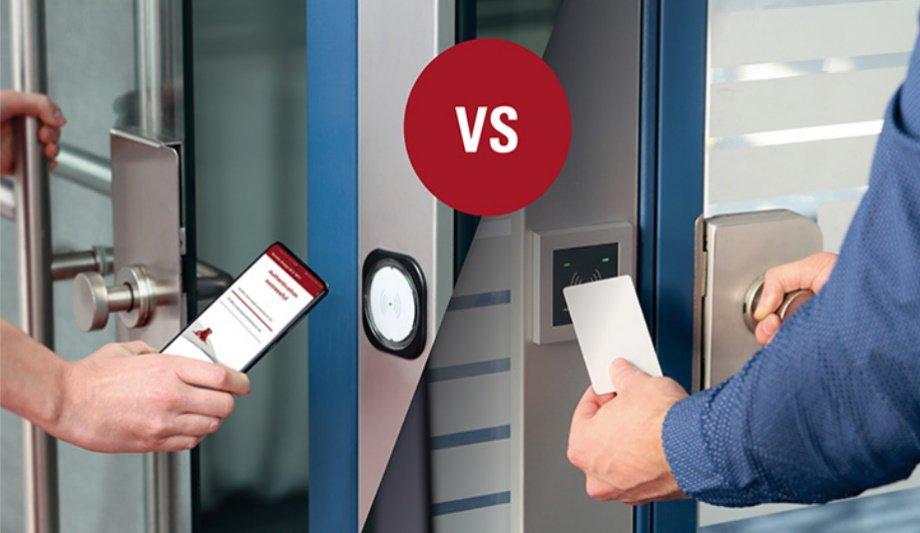The smartphone is an integral part of our daily routines. The communication and entertainment device of yesteryear has become a serious player with which we increasingly handle sensitive processes, such as payment transactions.
BLE or NFC authentication
At the supermarket checkout, more and more customers are pulling out their smartphones instead of their wallets. Apple Pay, Google Pay, or specific banking apps make it possible: to hold the smartphone in front of the reader of the checkout system, and the transaction is completed without contact.
In technological terms, either Bluetooth® Low Energy (BLE) or Near Field Communication (NFC) is used to complete the authentication and authorise the payment process.
Benefits of smartphone authentication
Issuing cards, taking them back, blocking and replacing lost cards all is no longer necessary
Smartphone authorisations are also becoming increasingly popular for access solutions. The advantages are obvious. Users do not need an additional medium to gain access to the building or data.
For the IT department, the switch is just as convenient. Issuing cards, taking them back, and blocking and replacing lost cards are no longer necessary, saving time and money.
Card systems
However, card systems are still irreplaceable in some cases. For example, in manufacturing environments where smartphones are often prohibited.
Country-specific regulations also play a role: not everywhere is the professional use of private cell phones permitted. In Germany, for example, data protection is an obstacle; on the other hand, not every employee automatically has a company cell phone.
Card or smartphone?
The question "card or smartphone?" is not necessarily a matter of choice. There is much to be said for hybrid use, especially since the card and smartphone share numerous strengths: both are suitable for building access and for secure data access, and both can be used for applications such as secure printing and for time and attendance systems, to name just a few examples.
This is also the reason that a hybrid system using both media is an excellent solution for many companies.
Technological transition
The transition from card to smartphone often raises concerns in companies at the beginning
As with any technological transition, the transition from card to smartphone often raises concerns in companies at the beginning.
After all, seamless security must be maintained at all times, and productivity should not suffer due to technological innovations for example, because users suddenly have difficulty accessing the data and programs they need for their daily work. In addition, deployment scenarios are very individual from industry to industry and organisation to organisation, and a wealth of questions must be clarified in advance.
Flexible universal readers
ELATEC is at the user's side as an experienced partner and with the appropriate systems, including software. With its universal readers, for example, users remain flexible and can handle cards and smartphones in parallel operation.
This "soft migration" is often the best way: take a relaxed approach and see how mobile access authorisations are accepted in an organisation and how they work for user-specific purposes.























